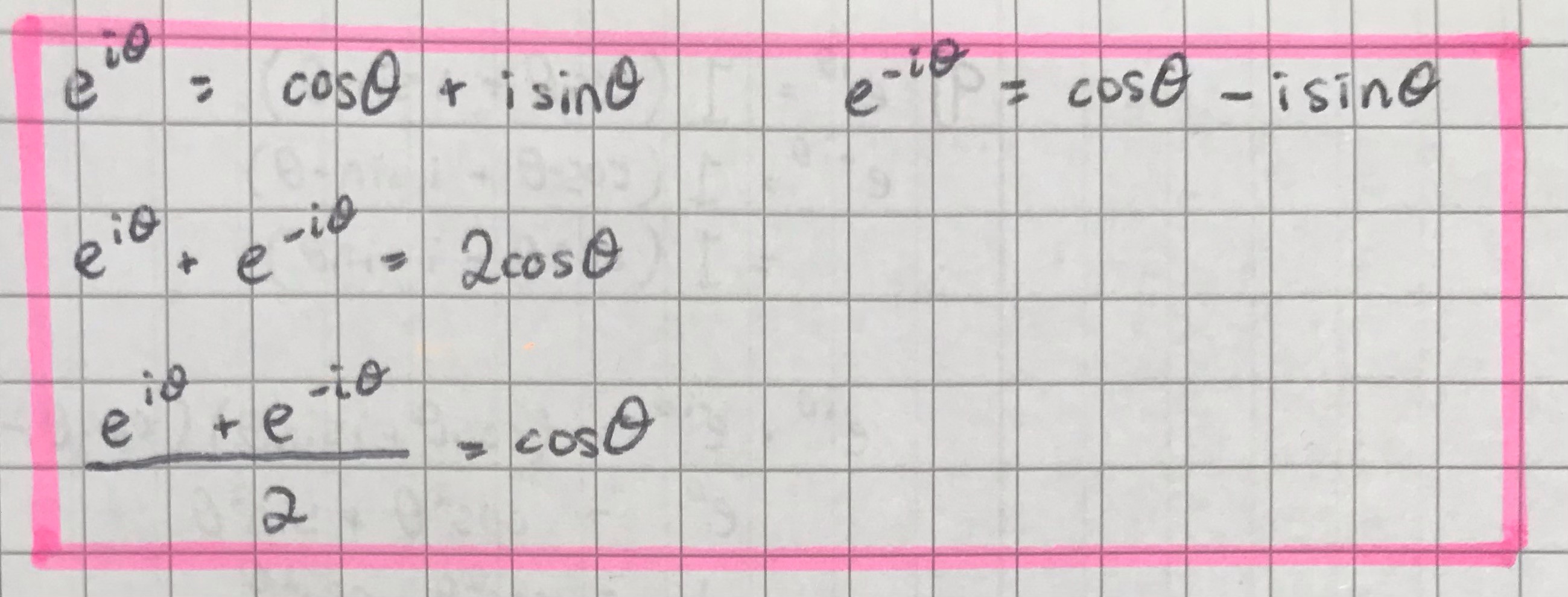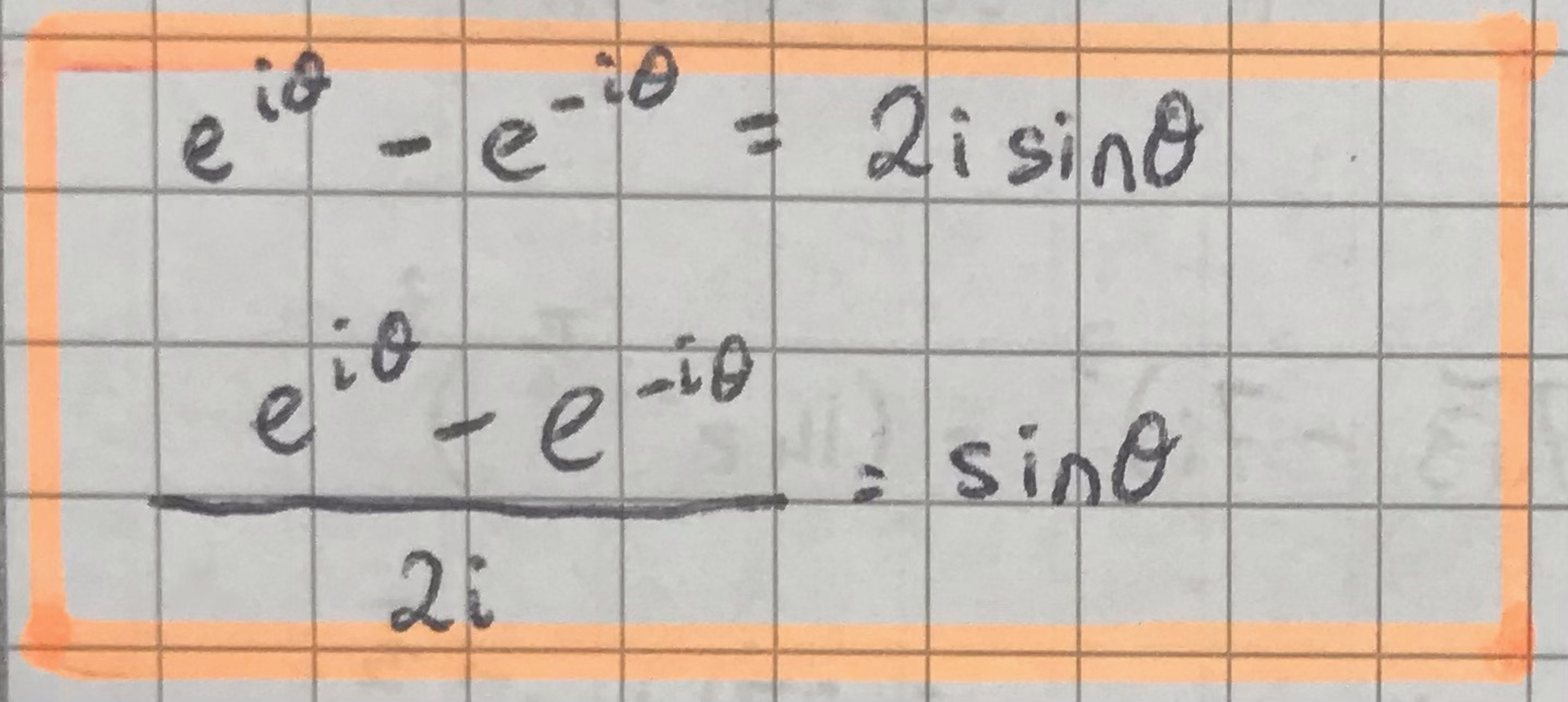Complex Numbers and Argand Diagrams
1/20
Earn XP
Description and Tags
Name | Mastery | Learn | Test | Matching | Spaced | Call with Kai |
|---|
No analytics yet
Send a link to your students to track their progress
21 Terms
modulus-argument form
z = r(cosθ + isinθ) where |z| = r arg z = θ
exponential form
z=re^iθ
rules for multiplying/dividing complex numbers in mod-arg/exponential form
multiply moduli, add arguments (or the reverse)
exponential form
re^iθ
θ in radians
argument of a real number
-π, 0, π
argument of imaginary number
π/2, -π/2
expression for cosθ

expression for sinθ

derive the expression for cosθ from Euler’s relation

derive the expression for sinθ from Euler’s relation

how to derive a formula for sin(nθ) and cos(nθ)
cos(nθ)+isin(nθ) = (cosθ+isinθ)ⁿ (de Moivre’s theorem)
expand this bracket
the real parts are cos(nθ) and the imaginary parts are sin(nθ)
how to change cosⁿx/sinⁿx into sum of multiple angles
express trig function in exponential form
let z=e^iθ such that cosⁿ(x) = ½[z+(1/z)] and sin(x)=(1/2i)[z-(1/z)]
expand this using binomial expansion
gather inverse terms together
zⁿ±(1/zⁿ)= 2cos(nθ)/2sin(nθ) - de Moivre
done!
integral of cosnθ
(1/n)[sin(nθ)]
integral of sin(nθ)
(-1/n)cosnθ